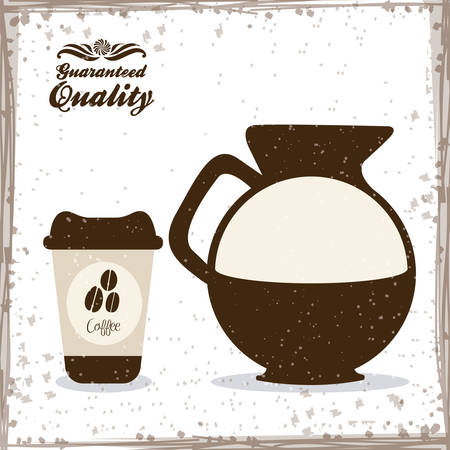1. Introduction to Ethical Consumerism in the UK
Ethical consumerism has become an increasingly prominent topic within the UK, reflecting a broader shift in societal attitudes towards sustainability and responsible consumption. As British consumers grow more conscious of their environmental footprint, they are making choices that align not only with personal taste but also with social and ecological values. This movement is particularly evident in the nation’s vibrant coffee culture, where a cup of coffee is no longer simply about flavour and aroma—it now represents a statement about sourcing, waste reduction, and community impact. The rise of ethical consumerism signifies a collective effort to address pressing global challenges such as climate change and resource scarcity, with UK shoppers seeking out businesses that prioritise transparency, fair trade, and circular practices. Within this evolving landscape, recycling initiatives—like repurposing spent coffee grounds—are gaining traction as both consumers and industry leaders explore innovative ways to minimise waste while enhancing the overall value chain. Thus, ethical consumerism is not merely a trend but a transformative force shaping how Britons engage with their daily brew, redefining what it means to enjoy coffee in an ethically conscious society.
Coffee Consumption Trends and Environmental Impact
The UK’s relationship with coffee has evolved dramatically over the past two decades, as specialty cafés and home brewing have embedded themselves into daily routines. Today, Britons consume approximately 95 million cups of coffee every day—a statistic underscoring the beverage’s cultural significance. Yet, beneath this vibrant coffee culture lies a complex environmental challenge linked to both production and waste, particularly in relation to spent coffee grounds.
Current Coffee Habits in the UK
Modern British consumers are increasingly discerning, seeking not only quality but also ethically sourced options. The proliferation of independent roasteries and third-wave cafés reflects a shift towards transparency in sourcing, roasting profiles, and sustainability credentials. However, this surge in consumption generates significant volumes of coffee waste, particularly used grounds, which often end up in landfill sites.
Environmental Footprint: Production to Waste
The environmental impact of coffee consumption extends from farm to cup—and beyond. Key areas of concern include:
| Stage | Impact Area | Technical Considerations |
|---|---|---|
| Coffee Farming | Deforestation, water use | Pesticide/fertiliser runoff; habitat loss; high water demand for cultivation |
| Roasting & Transport | Energy consumption; emissions | Natural gas/electricity use; CO2 emissions from roasting and logistics |
| Brewing & Consumption | Energy; packaging waste | Kettle/espresso machine energy draw; single-use cups/lids |
| Coffee Grounds Disposal | Methane emissions; landfill burden | Anaerobic decomposition releases methane—a potent greenhouse gas—in landfills |
Coffee Grounds: A Hidden Environmental Cost
Spent coffee grounds represent a major by-product of Britain’s daily coffee rituals. In the absence of recycling initiatives, an estimated 500,000 tonnes of coffee waste is sent to landfill annually across the UK. Here, grounds decompose anaerobically, emitting methane and contributing disproportionately to the nation’s carbon footprint. This hidden environmental cost highlights the urgent need for systemic change—both at consumer and industry levels—to manage coffee waste more sustainably.

3. Recycling Coffee Grounds: Methods and Innovations
Britain’s growing emphasis on ethical consumerism has spurred a wave of innovation in the recycling of coffee grounds, both at home and in commercial settings. As UK consumers become increasingly aware of sustainability issues, the spotlight is shifting towards how we handle the by-products of our daily brew. Traditional disposal methods are rapidly being replaced by creative solutions that align with the nation’s commitment to reducing waste and lowering carbon footprints.
Domestic Approaches: Engaging the Everyday Consumer
On a household level, British coffee drinkers are embracing practical ways to repurpose used coffee grounds. Gardeners across the UK have long valued coffee grounds as a natural fertiliser rich in nitrogen, perfect for compost bins or directly enriching soil. Beyond horticulture, eco-conscious households utilise spent grounds for deodorising fridges, scrubbing surfaces, or even as an ingredient in homemade skincare products. These small-scale actions not only reduce landfill waste but also encourage a culture of mindful reuse among consumers.
Commercial Initiatives: Leading Industry Transformation
The commercial sector is witnessing pioneering efforts that could reshape industry standards. Many independent cafés and major chains alike now partner with local recycling firms to collect used grounds en masse. One innovative example is their conversion into biofuels—some London buses now run on blends derived from recycled coffee grounds, exemplifying how urban transport can benefit from circular economy principles. Elsewhere, start-ups are transforming spent grounds into sustainable packaging materials, furniture composites, and even edible products like mushroom-growing kits.
Collaboration and Community Impact
Community-driven programmes further amplify these innovations. Local councils and non-profits support initiatives where residents can drop off their coffee waste at designated points for collective recycling projects. By facilitating access and raising awareness, these schemes empower communities to play an active role in sustainable practices that reflect broader UK environmental goals.
Future Potential: From Niche to Norm
As ethical consumerism gains traction, the potential for scaling these recycling methods grows stronger. With greater investment in research and infrastructure, coffee ground recycling could soon become standard practice across Britain’s hospitality sector and beyond. This shift stands to not only minimise environmental impact but also redefine what it means to make ethical choices—making every cup of coffee part of a larger movement towards sustainability.
4. The Role of UK Coffee Shops and Roasteries
As ethical consumerism continues to shape the landscape of the British coffee industry, many UK coffee shops and speciality roasteries are taking proactive steps towards sustainable practices—specifically through the recycling of coffee grounds. These businesses recognise that their influence extends beyond just serving a quality cup; they are now pivotal players in fostering environmentally responsible habits and shaping consumer expectations.
Ethical Recycling Initiatives Among British Coffee Businesses
Coffee shops and roasteries across the UK are increasingly integrating closed-loop systems to handle waste. This involves not only segregating used coffee grounds but also partnering with local councils, composting initiatives, and even beauty brands to give these by-products a second life. Some establishments utilise innovative collection schemes where customers can take home free spent coffee grounds for use as fertiliser, while others participate in larger-scale collaborations that transform grounds into biofuels or building materials.
Practical Approaches Adopted by Industry Leaders
| Coffee Shop/Roastery | Recycling Practice | Community Impact |
|---|---|---|
| Origin Coffee | Supplies used grounds for local composting projects | Reduces landfill waste and enriches community gardens in Cornwall |
| Grind (London) | Partners with UpCircle Beauty for skincare products | Promotes circular economy and supports ethical British brands |
| Pact Coffee | Sends spent grounds to be processed into renewable energy pellets | Lowers carbon footprint and provides alternative fuel for local businesses |
Case Studies: Local Impact in Action
The collaboration between Grind and UpCircle Beauty is a prime example of how London’s vibrant coffee scene is pioneering sustainable innovation. By redirecting coffee waste into high-end skincare products, both companies not only reduce environmental impact but also educate consumers on the possibilities of ethical upcycling. Similarly, Origin Coffee’s partnership with Cornish community gardens demonstrates how even small-scale initiatives can foster biodiversity, improve soil health, and inspire wider participation among local residents.
These case studies reflect a broader shift within the UK’s coffee sector—where transparency, traceability, and community engagement are as important as the flavour profile of a single origin espresso. As more British consumers seek out ethically-minded cafés and roasters, these initiatives reinforce trust and help build a culture of conscious consumption that extends far beyond the cup.
5. Consumer Perspectives: Influence on Coffee Choices
The adoption of ethical consumerism in the UK is increasingly evident in the way coffee drinkers make their purchasing decisions, particularly when it comes to brands that engage in recycling initiatives. Cultural trends have shifted towards a heightened awareness of environmental issues, with sustainability now considered an essential factor rather than a mere preference. This movement is notably strong among younger demographics and urban populations, where public discourse frequently highlights the ecological impact of everyday habits.
Public Awareness and Education
Recent years have witnessed a surge in campaigns and educational programmes across the UK, emphasising the significance of reducing waste and promoting responsible resource management. As a result, British consumers are more informed than ever about the lifecycle of products—including coffee—and the benefits of circular economy practices such as recycling spent grounds. This increased public awareness has translated into greater scrutiny of coffee brands’ environmental credentials and transparent supply chains.
Cultural Trends Shaping Preferences
Coffee culture in the UK is evolving, with consumers seeking not just quality brews but also assurance that their choices align with their values. Initiatives like using recycled coffee grounds for composting, biofuel production, or even as ingredients in beauty products have gained traction and positive media coverage. These efforts resonate deeply with a society that values both innovation and tradition, blending modern sustainability concerns with Britain’s long-standing appreciation for a good cup of coffee.
The Desire for Sustainable Solutions
Ultimately, the desire for sustainability is shaping consumer behaviour at both individual and community levels. Many Britons now favour cafés and roasteries that demonstrate commitment to ethical practices—often going out of their way to support businesses that recycle or repurpose coffee waste. Loyalty is increasingly tied to environmental stewardship, prompting even large chains to adapt in order to meet these expectations. For the UK’s discerning coffee drinkers, choosing ethically produced and environmentally conscious coffee isn’t simply a trend—it’s become an integral part of daily life and local identity.
6. Looking Ahead: The Future of Ethical Coffee Consumption in the UK
As the UK continues to embrace ethical consumerism, the future of coffee consumption is poised for significant transformation. Recycling coffee grounds has already made a noticeable impact on British coffee culture, but its true potential lies ahead as both consumers and industry leaders seek innovative ways to minimise environmental harm while upholding ethical standards.
The Role of Innovation and Policy
The next decade is likely to see increased investment in new technologies that maximise the value of spent coffee grounds, from advanced composting solutions to biofuel production. Furthermore, as public awareness grows, there is mounting pressure on policymakers to incentivise sustainable practices within the coffee industry. Potential policy changes may include stricter waste management regulations for cafés and roasteries, tax benefits for businesses engaging in circular economy initiatives, or even national campaigns promoting responsible disposal and recycling among consumers.
Cultural Shifts in Coffee Appreciation
These developments are expected to reshape how Britons perceive their daily brew. Ethical considerations—such as supporting local roasters who prioritise sustainability or choosing cafés with transparent recycling protocols—will increasingly influence purchasing decisions. Over time, this could lead to a uniquely British coffee culture where provenance, environmental impact, and social responsibility are as highly prized as flavour profiles and brewing techniques.
Long-Term Effects on British Coffee Ethics
Looking further ahead, the integration of coffee ground recycling into mainstream practice could redefine what it means to be an ethical consumer in the UK. As recycling infrastructure improves and becomes more accessible, it will be easier for individuals and businesses alike to participate in sustainable cycles. This ongoing commitment not only reduces landfill waste but also fosters a collective sense of responsibility—a hallmark of modern British values. Ultimately, by championing coffee ground recycling today, the UK is setting the stage for a future where every cup supports both community well-being and planetary health.


